The year was 1999. The name was AR.Rahman.
The 32 year old composer, who had taken Tamil cinema by storm seven years earlier, had literally established a new-age musical monopoly, redefining contemporary Indian film music forever.
Tamil Nadu was in frenzy.
The magic of En Swasa Kaatre, Jodi, Taalam, Kadhalardhinam, and Sangamam was echoing from high end saloons to tea stall benches.
Superstar had given a three hour long blockbuster in his second collaboration with the youth sensation.
Vijay had matured into a promising actor with Thulladha Manamum Thullum. Innisai Paadi Varum was holding its forte among the biggies.
Ajith had just broken the shackles of heroism, giving his career best performance in Vaali. O’ Sona was rocking the radio stations.
Bharadwaj had unleashed a literally breathtaking SPB again in Amarkalam. Girls were going crazy over Unnodu Vaazhadha.
And then, like a sudden flash of a quirky youthful energy, Chudithar Aninthu happened.
Yuvan had arrived.

The struggle for a break
The twenty-year-old finally shot to limelight after a hard three year struggle, with Vasanth’s Poovellam Kettupaar.
With the infectiously chirpy Jyothika breaking into an ‘I-am-happy-and-I-don’t-care-what-you think’ jig, Poova Poove announced Yuvan’s stylish entry into our hearts.
A peppy tune made appealing by the chemistry between the pretty Jo in a white Salwar and the handsome Surya, Chudithar Aninthu turned out to be the year’s anthem for romance.
And then, there was the fast and cheerful Senorita, sung with a bubbly charm by Unnikrishnan – a track that could lift up your spirits any time of the day.
The mellifluous Irava Pagala rounded off the album, with the message loud and clear.
Yuvan Shankar Raja was getting noticed.

The sensational sophomore
Three years later in 2002, Yuvan joined hands with Selvaraghavan for the sensual Thulluvadho Ilamai, marking the first magical collaboration of the duo, which would go on to become one of the most sought after associations in Tamil cinema.
While the sprightly Kann Munnae and Idhu Kaadhala (in Yuvan’s voice) beautifully reflected the exhilaration of first love, Vayadhu Vaa Vaa was a ‘sexual-awakening riot’ of sorts.
The unconventional Theenda Theenda, based on the Reetigowla raga, was quite an amalgamation of lust and youthful angst.
There was something about this man’s music, which clearly set him apart… Music that seemed to emanate from the subconscious. Music that not only appealed to the brain but also to the heart.
Yuvan was growing, in leaps and bounds.

A thing or two to prove
Selva’s first independent directorial Kaadhal Kondein followed in 2003, challenging many of the erstwhile unwritten rules of Tamil cinema.
Yuvan proved his mettle in all its glory in this versatile album, which was celebrated by the critics and youth alike.
The energetic Devadaiyai Kandaen, soulfully rendered by Harish Ragavendra and the oxymoronically-soothing Nenjodu Kalandidhu in the mesmerizing voices of Unni krishnan and Sujatha, cemented Yuvan’s place as a musician who could easily bring a film alive by scaling up the mood several notches higher.
Yuvan further impressed with the atmospheric and angst-ridden Thottu Thottu Thoovum Thendral, again by Harish Ragavendra, which boasted of some truly haunting interludes.
And who can forget the intense theme track, strung with unconventional exploding-percussions rocking the climax!
Yuvan’s background score for the film reached places, leading to the release of a separate CD consisting of several score pieces, which was supposedly the first film-score CD release to happen in India.

A stirring metamorphosis
And in 2004, 7G Rainbow colony happened.
How does it feel to walk through a rainbow? The instrumental theme with a bewitching combination of flute, piano and bell-sounds gives you a near equivalent experience.
Shreya Goshal’s brooding Ninaithu Ninaithu with its simple yet soulful composition, the melancholic Kanaa Kaalum Kaalangal and the psychedelic January Madham made 7G a cult album, in its own right.
As it was the case with Kaadhal Kondein, the film’s original soundtrack consisting of 25 tracks was released afterwards.
Yuvan received his first Filmfare Best Music Director Award in Tamil for 7G Rainbow Colony at the age of 25, becoming the youngest composer ever to win this award.
The talented musician had matured into a soulful composer.

Breaking boundaries…
Innovative and unsettling – 7G Rainbow colony’s soundtrack was indeed a milestone in Yuvan’s career, which incidentally also catapulted him into the big league of musicians.
The talented youngster seemed to have an uncanny ability to strike gold in portraying the mystical, dark shades of love and the intricate emotions associated with them.
His compositions for Selva till 2004 were hauntingly unique, carrying a discernible difference from each other, but raised the question of his mastery only in the moody romance genre.
He had shown streaks of versatile brilliance earlier in Oar Aayiram Yaanai for Bala’s Nandha, but even there, it was the intimate Munn Paniya that got him noticed.
But soon enough, in early 2005, a soul-stirring background score for Ameer’s Raam fetched him the Best Musical score award in the Cyprus International Film Festival (CIFF), the first such award for an Indian composer.
The 25-year-old passionate musician had got the first taste of international recognition.

A star is made!
But the cynic was still not silenced. Commercial flicks in 2005 seemed to add fuel to the fire. But little did his doubters know that ‘epic’ was just round the corner.
It went by the name Pudhupettai.
Yuvan and Selva renewed their association with this raw, ruthless gangster flick, coming out with an inventive album that was almost an allegorical blow to comments alluding the music director to be nothing more than an expert in the romance genre.
Several traditional Thai musical instruments, including Khim and Southuu were also used for the orchestration, another first in Tamil cinema. And the results showed.
The fact that six of the ten listed tracks were not conventional song pieces, in itself, spoke tons about Yuvan’s guts, and the belief Selva had in his composer’s capabilities.
And what a soundtrack it turned out to be!
The four instrumental pieces Pudhupettai Main theme, Going Thru Emotions, Selling dope, and Clash of Titans left music-lovers stunned and lost for words.
For once, a composer had dared to break the barb-wire borders of an Indian film sound track, experimenting with sounds and moods hitherto reserved only for foreign films.
In Going Thru Emotions, Yuvan transported us to a parallel musical universe with an unbelievable assortment of instruments and a hooking rhythm. And when the prayer chants started towards the end, all we could do is give in to the magical high.
The melodious yet gritty violin ensemble in The Pudhupettai main theme had to be heard to be believed.
If these were not enough to convince us of this album’s excellence, Yuvan further unleashed on us the “Clash of the Titans” theme, which soared higher and higher as it panned out.
And to top it all, there was Kamal.
The man’s throaty voice and nonchalant vocal gymnastics combined with a blend of guitars, synthesizers, strings and Thai instruments made Neruppu Vaayinil an instant classic.
The profound Oru Naalil, the western-gaana, Enga Area, and the vibrant dappankuthu, Night Life: Variya stratosphered Pudhupettai’s soundtrack to a place light-years away from contemporary Tamil cinema.
The composer had proved a point or two, breaking his own shackles brilliantly.
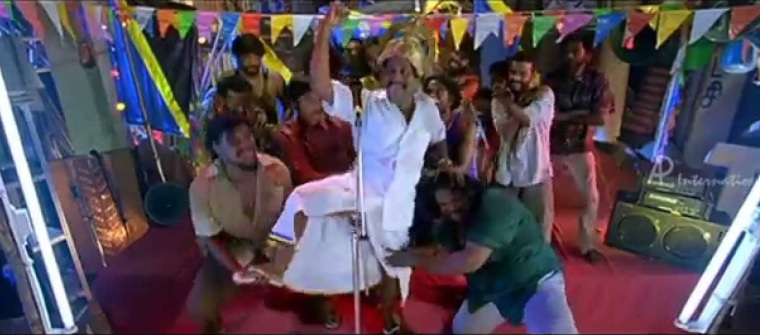
A milestone more…
When you were thinking that the guy couldn’t impress anymore, Ameer’s Paruthiveeran landed in 2007.
The raw, earthy background score went a long way to establish the film’s hard-hitting, rustic feel.
Oororam Puliyamaram, which used authentic rural sounds with instruments like dholak, nadaswaram, thavil and urumee, epitomized the countryside folk riot, in all its oomph and simplicity.
Ayyayyo, the track that plays soon after Veeran reciprocates Muthazhagu’s affection, made many an audiophile go crazy over Shreya’s honeyed voice.
And then, we had Ilaiyaraaja doing what he does best – haunt us to tears – in the beautifully orchestrated Ariyadha Vayasu.
Yet another terrific album. Yet another landmark film.
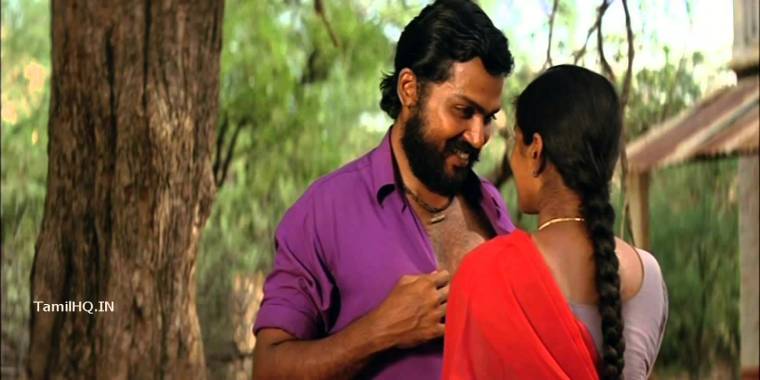
The zeal for experimentation
Yuvan went on to deliver blockbuster albums for Deepavali, Chennai 600028, Yaaradi Nee Mohini, and Satham Podathey in 2007, with the melodious Pogadhey, Kadhal Vaithu, Engeyo Paartha, Vennmegam, the heartwarming Pesugiren Pesugiren and the zany Jalsa Pannungada going on to become crowd favourites.
Just when the composer seemed to be caught in the commercial trap again, Ram signed him for his poetically eccentric Katradhu Tamizh.
And Innum Or Iravu happened. The track rendered by Yuvan in his signature tipsy tone – with a magical orchestration involving percussions – dripped of an eerie atmosphere.
The man mercilessly unleashed his dad again onto the unsuspecting audience in Paravaiye Engu Irukkirai. The maestro, on his part, nailed the heart-wrenching pathos with his trademark rendition, while Yuvan impressed with his brilliant interludes.
The lovely Unakage Thane, sung again by Yuvan, added to the overall appeal of the album.
The man had nothing more to prove, but he was expanding new horizons with each new venture.

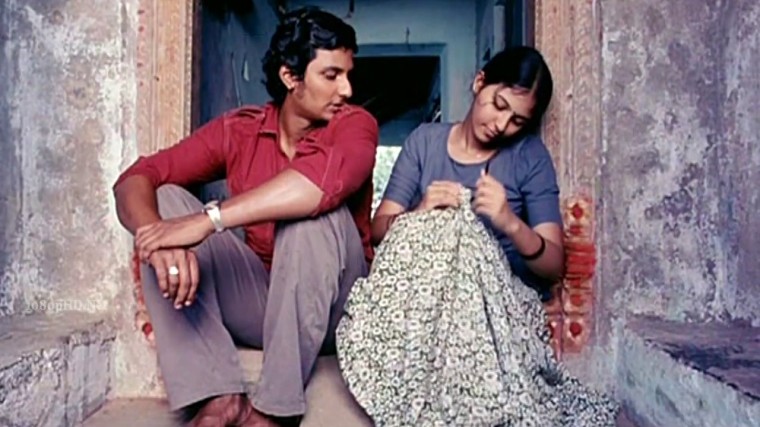
A terrific come-back…
From 2008 to 2011, Yuvan worked in several films, out of which the soundtracks of Saroja, Sarvam, Paiyaa, Naan Mahaan Alla, Padhinaaru, Pesu (unreleased), and Kaadhal 2 Kalyanam (unreleased) received critical acclaim, with Kodaana Kodi, Kaatrukulle, Thuli Thuli, En Kadhal Solla, Iragai Pole, Yaar Solli Kadhal, Vennira Iravugal, Thedi Varuven becoming true-blue chart-busters.
The Mankatha theme drove an entire generation crazy.
But something about signature ‘Yuvan’ was conspicuously missing – may be, it was the daring experimentation that was synonymous with him at one stage of his career.
But again, towards the end of 2010, Thiagarajan Kumararaja’s Aaranya Kandam transpired.
Quirky, dark and offbeat, the gangster-drama’s background score was no doubt ‘Tarantinoesque’, but it was a welcome change from the deafening sounds of earlier action-flicks. The provocative guitar strings, the atmospheric solo-violins, and the smart fill-ins during the climax sequence were proof enough of the musician’s capabilities.
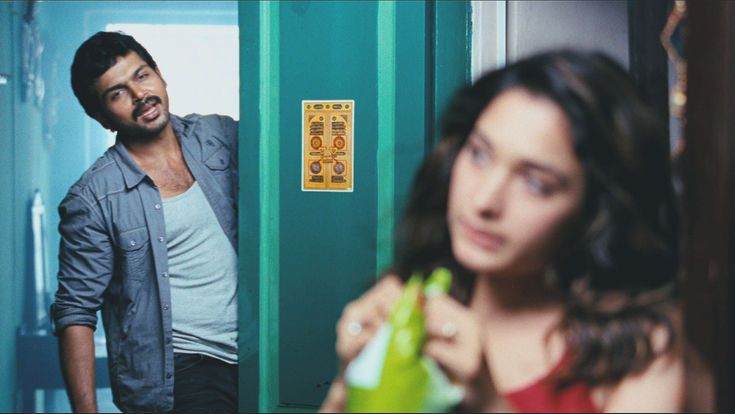
Spaced-out pieces of brilliance ever since
Vasanth renewed his association with Yuvan in 2012 for his film ‘Moondru Per Moondru Kadal’, which had some amazing tracks.
The spellbinding Aahaa Kadhal, the compelling voice of Neha Bhasin in Kaadhal Endhan Kadhal, and the perky Stop the paattu were all some of Yuvan’s bests.
In 2013, director Ram’s Thangameengal had the evocative and soul-stirring Anandha Yazhai going on to receive National accolades.
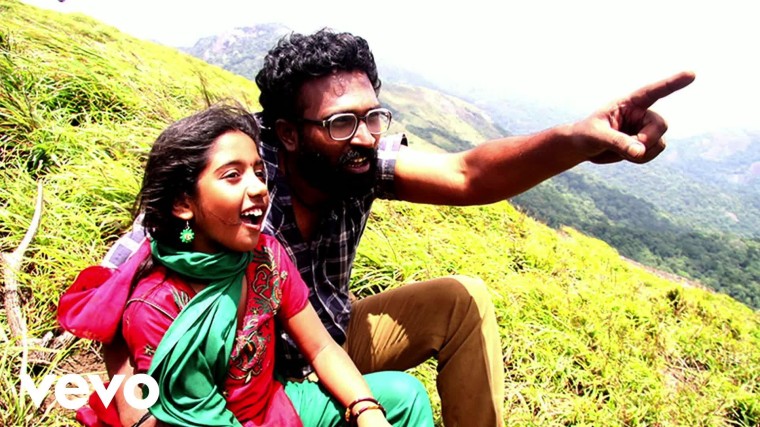
There is no denying the fact that YSR had come a long long way, from the enthusiastic talented kid in Poovellam Kettupar to the matured magical musician in Aaranya Kandam.
In this span, he has worked on more than a hundred films, successfully exploring elements of various genres that ranged from folk and R&B to techno and heavy metal.
With Ram’s Tharamani and Peranbu, Dharmadurai, Pyaar Prema Kaadhal, Selva’s Nenjam Marapadhillai hitting some lovely notes, and exciting films like NGK, Maari 2, and Super Deluxe in the pipeline, how we wish to relive Yuvan’s magic of the last decade, again.

And again. As they say, hope is a good thing.
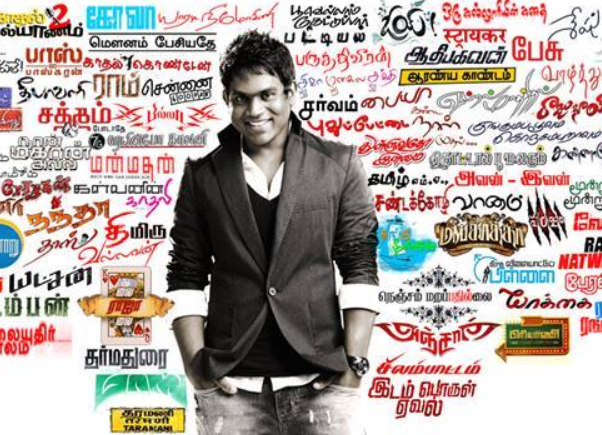
It’s a awesome write up.
yuvan shakar Raja …live u to the core
Diehard Yuvan bloods
Show me a better Music director fan base!!?(for legend,they say v r worlwide…but show me a diehard fan club like yuvan)
Proud to be Yuvanian #Yuvanism😍
LikeLike